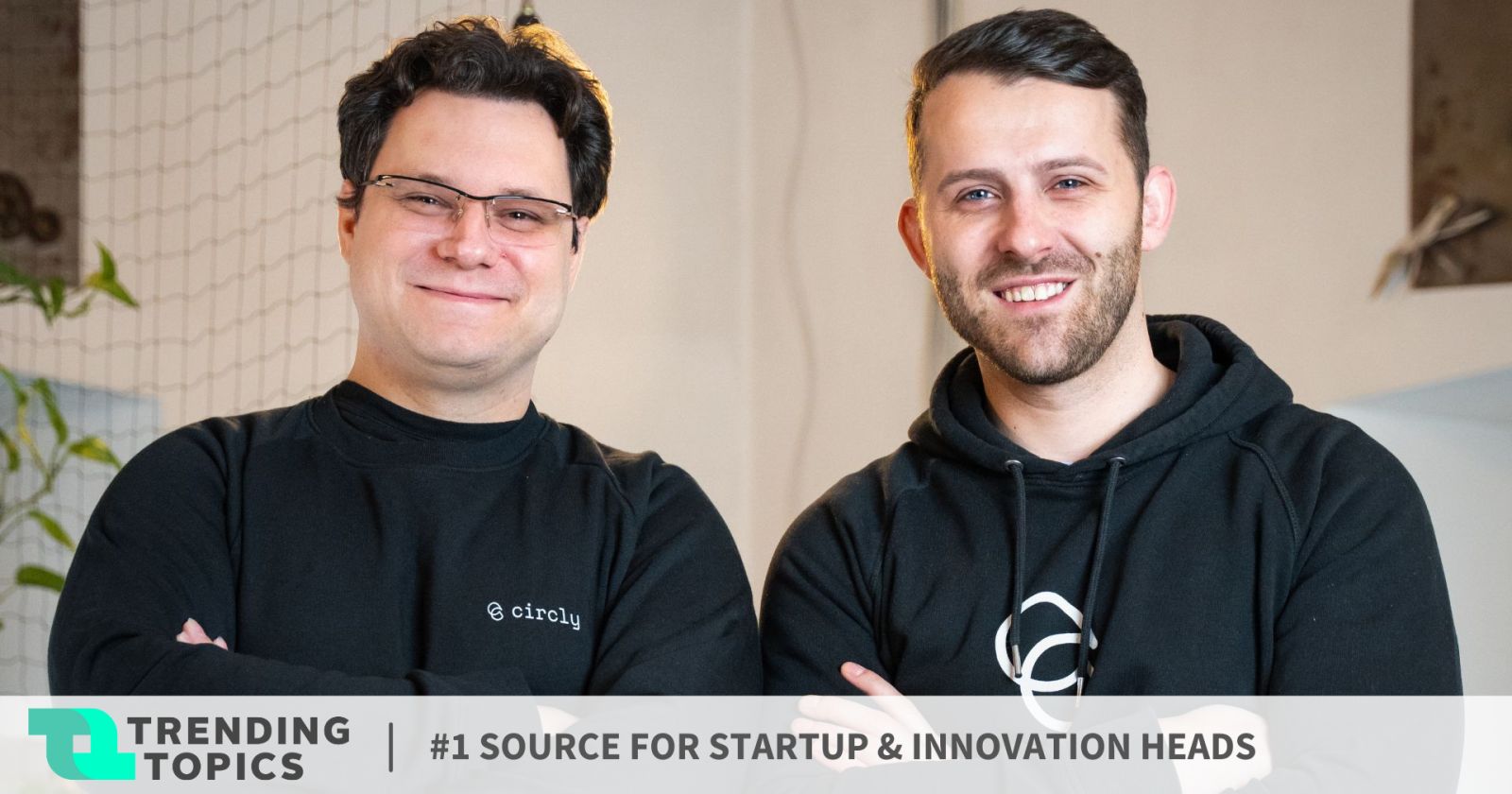They want to use artificial intelligence to stop the waste of resources in retail – and have already made a name for themselves in the Austrian start-up scene since they started. After securing early-stage financing from tecnet equity in 2021, a large round of financing is now to follow. The founders Armin Kirchknopf and Eric Weisz (the third in the group at the start, Bernhard Lutzer, is no longer there) have now raised more than one million euros.
The investment comes from tecnet equity in the lead, further capital comes from aws Seedfinancing and A&S Beteiligungsgesellschaft, Axel Greiner, the Tyrolean Business Angel Network, Reventura and Max Schnödl. Their software is intended to help trading and production companies to optimize their planning processes and supply chains so that they save money. This can also be interpreted in such a way that companies can use AI to conserve resources. Circly, which has its headquarters in St. Pölten, currently employs 10 people and is set to expand.
Circly: Startup stops wasting resources in retail with artificial intelligence
In the interview, the Circly founders explain how their AI works and how it can be used in practice:
Can you describe the AI in more detail? How does it work, what foundation model is used?
Circly works in the field of time series forecasting. We use historical sales and promotions data, which correlate with external factors (so-called exogenous features) to forecast or simulate the future.
We don’t have one foundation model, we work with 10 different ones – one model for a variety of products with different characteristics would not work. Our typical customer z. B. in retail has over 4,500 SKUs (products) which – depending on their characteristics – sell regularly, seasonally or irregularly. The choice of models is based on the automated data analysis (usually the amount of data and the aforementioned RSU classification is decisive) and is assigned automatically.
Which technologies we use for this and how they interact with each other is our core know-how. Please understand that we cannot go into detail here, as this knowledge cannot be protected. Essentially we use Python – from RNNs to ANNs. However, we are not built on top of Azure, AWS or Firebase. The models were developed in Austria and run on hardware in Austria and Germany.
We optimized the models for producer and retailer use cases. Tests with new individual data were successful in both areas. However, it is important to note that these are untrained models that simply require our customers’ datasets. With us, the data can be cleaned according to certain rules. Once the data is loaded, we can calculate results the same day.
What is a typical use case, e.g. for a brewery – how does this use Circly?
The use case is usually similar, regardless of whether it is a beer or food producer or a retailer. In order to use the brewery as an example, you have to know that producers hardly have any contact with consumers. The traders give the producers hardly any information, since there are real business models behind the data exchange. Therefore, many producers only plan with 60-70% accuracy, especially in strongly action-driven categories such as beer. By using our software, you are able to circumvent the missing information flow without emotions and only on the basis of data. Retail purchasing is based on staggered demand patterns, which can now be simulated by AI in the future.
Typically we get 3 years of historical heels, which we correlate with the exogenous features. The forecasts include influences such as public holidays, weather, promotions and the like. The information ends up in the existing planning tool and is used there as an information stream for purchasing, production quantity planning and controlling for the future.
In retail, the solution is used to a very large extent on MDE devices (mobile hand scanners). The product is scanned and the determined quantity lands directly on the screen. It does not need a data scientist to determine it. In retail, the aggregated data can also be exported to the head office in order to optimize scheduling.
How does the business model work?
Circly offers the software as a service. The well-documented API can be connected within a day. As soon as the original load has been cleaned up, the platform can already be used after a short time. However, most customers integrate the information into their existing system (Dynamics, SAP, their own merchandise management systems). There are no big process adjustments, no hidden costs, no projects.
For a price that quickly pays off from 1 euro per day/license, Circly customers receive a complete package consisting of GDPR-compliant infrastructure in Germany and Austria (choice between Circly’s own infrastructure and German cloud provider infrastructure), external data sourced and implemented by Circly and automatic updates.
